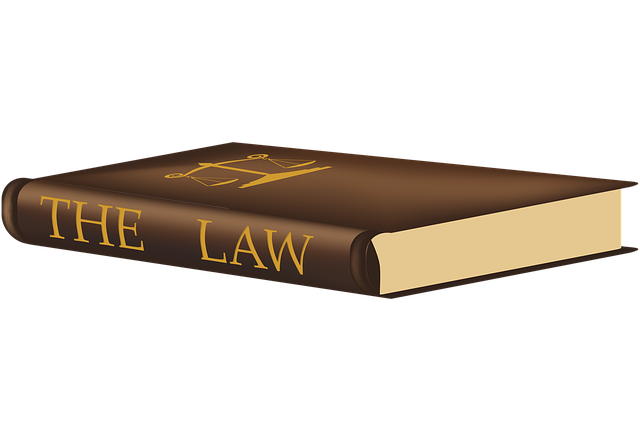Antitrust violations threaten fair market competition by fostering price fixing and monopolistic behavior, harming consumers and businesses alike. Consumer Protection Under Competition Law is a cornerstone of antitrust law aimed at preserving competitive markets, driving innovation, lower prices, and improved product quality. Specialized legal counsel is crucial for businesses facing charges to navigate complex defenses, mitigate financial & reputational risks, and ensure alignment with competition law principles. Effective enforcement mechanisms and regulatory bodies play vital roles in upholding consumer protection and deterring anti-competitive practices.
Antitrust violation cases play a crucial role in maintaining fair market competition and safeguarding consumer protection under competition law. This article delves into the intricate world of antitrust breaches, exploring their various forms and significant impacts on businesses and markets. We examine how these cases enforce competition principles, highlighting common types of violations and the enforcement mechanisms available. Understanding these dynamics is essential for both legal professionals and businesses aiming to navigate market complexities while upholding consumer rights.
- Understanding Antitrust Violation Cases
- Consumer Rights and Competition Law
- Common Types of Antitrust Breaches
- Impact on Businesses and Markets
- Enforcement Mechanisms and Remedies
Understanding Antitrust Violation Cases

Antitrust violation cases play a crucial role in safeguarding the Consumer Protection Under Competition Law. These legal battles aim to preserve fair market competition by preventing businesses from engaging in anti-competitive practices such as price fixing, market division, and monopolistic behavior. When companies violate these laws, it can lead to significant financial penalties and reputational damage.
Understanding antitrust cases is essential, especially for his clients involved in high-stakes business transactions. A general criminal defense strategy might not be sufficient in these scenarios due to the specialized nature of antitrust law. Therefore, businesses must be vigilant in adhering to competition regulations to avoid legal complications that could disrupt their operations and impact their ability to compete in the market.
Consumer Rights and Competition Law

In the realm of antitrust law, protecting consumer rights is a cornerstone of competition policy. Competition laws are designed to maintain a fair and vibrant market environment by preventing businesses from engaging in practices that restrict competition or harm consumers. These laws ensure that markets function efficiently, promoting innovation, lower prices, and improved quality of goods and services. At the heart of this protection lies the principle of consumer protection under competition law. By ensuring free and fair competition, antitrust regulations safeguard consumers from monopolistic practices, price-fixing schemes, and anti-competitive agreements that could limit choices or drive up costs.
The role of these laws is not merely to penalize businesses for misconduct but also to foster a competitive landscape where consumers benefit from diverse options. Navigating the complexities of competition law, especially in cases involving alleged antitrust violations, requires a deep understanding of both the legal framework and the impact on the broader market. Winning challenging defense verdicts or achieving complete dismissal of all charges can be a testament to the strength of consumer protection under competition law when businesses mount robust and effective defenses, demonstrating their commitment to fair play and philanthropy within the political communities they serve.
Common Types of Antitrust Breaches

Antitrust violations can take various forms, each with distinct implications for businesses and consumers alike. One common type involves price-fixing schemes where companies collude to set prices, limiting consumer choices and driving up costs. This practice is a clear breach of competition law, designed to protect the interests of consumers by fostering fair market competition. Another frequent breach is abuse of dominance, where a dominant company uses its market power to stifle competition or unfairly advantage itself over rivals.
Beyond these, there are also cases of mergers and acquisitions that may hamper free market competition. A general criminal defense strategy might not always be suitable for such situations; instead, white-collar defense attorneys specializing in antitrust law play a crucial role in navigating these complex cases. By understanding the nuances of consumer protection under competition law, these experts can achieve extraordinary results, ensuring businesses operate within legal boundaries and consumers benefit from fair market practices.
Impact on Businesses and Markets

Antitrust violation cases significantly shape the business landscape by upholding consumer protection under competition law. When companies engage in practices like price-fixing, market division, or monopolistic behavior, it not only hinders fair competition but also leads to higher costs for consumers. These violations can result in substantial financial penalties and legal repercussions, aiming to deter such actions and promote a level playing field.
The impact extends beyond monetary fines. Businesses found guilty may face reputational damage, affecting their ability to attract customers and partners alike. Moreover, these cases often prompt regulatory changes, influencing how companies conduct themselves within the market. By ensuring fair practices, antitrust laws protect not only consumers but also the philanthropic and political communities that rely on competitive markets for economic stability and growth.
Enforcement Mechanisms and Remedies

Enforcement mechanisms play a pivotal role in ensuring compliance with antitrust laws, which are designed to safeguard Consumer Protection Under Competition Law. Regulatory bodies like the Federal Trade Commission (FTC) and Department of Justice (DOJ) have the authority to investigate suspected violations through subpoenas, document requests, and interviews. These tools enable them to gather evidence of anti-competitive practices, such as price-fixing, market division, or abuse of dominant market position. Once a violation is established, remedies can include cease and desist orders, monetary fines, asset divestitures, and structural changes to the offending company’s operations.
For his clients facing antitrust charges, navigating these enforcement mechanisms and understanding potential remedies is crucial. While general criminal defense strategies may apply in some cases, specialized legal counsel with expertise in competition law can offer tailored advice. The impact of a violation extends beyond financial penalties; it can affect a company’s ability to operate in certain markets, shape its future growth strategies, and even influence its standing within the philanthropic and political communities. Effective representation involves understanding these complexities and developing a robust defense or negotiation strategy.
Antitrust violation cases are a critical aspect of consumer protection under competition law, ensuring fair market practices and fostering healthy business environments. By understanding these cases, their types, and impacts, we can promote robust competition while safeguarding consumer rights. Effective enforcement mechanisms and remedies play a pivotal role in deterring future breaches, ultimately benefiting businesses and consumers alike by maintaining a balanced and dynamic marketplace.






